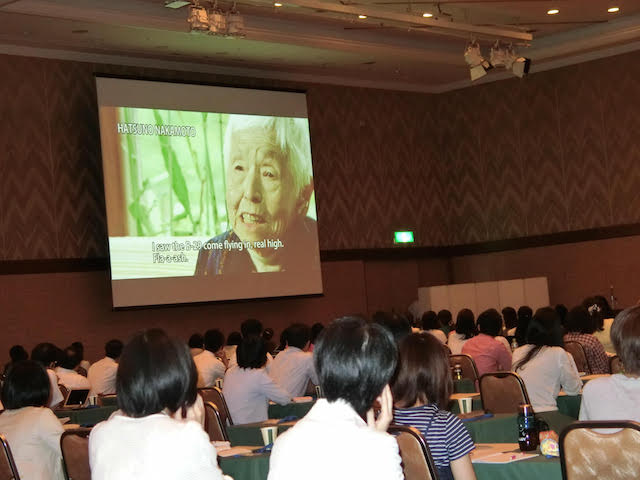By Ronald Joshua
A new ‘Generation of Change’ is making its presence felt, pledging to walk the talk over the last 70 years in a clarion call for freeing the world of 16,000 to 17,000 nuclear weapons that continue “to threaten every single person with the prospect of a cruel and inhumane death”.
Concluding a three-day International Youth Summit on Nuclear Abolition in Hiroshima, commemorating the 70th anniversary of the atomic bombings that also razed the city of Nagasaki to the ground, the pledge stated on August 30: “Nuclear weapons are a symbol of a bygone age; a symbol that poses eminent threat to our present reality and has no place in the future we are creating.”
The Youth Summit followed on the heels of the 25th UN Conference on Disarmament Issues in Hiroshima, organised by the Bangkok-based United Nations Regional Centre for Peace and Disarmament in Asia and the Pacific (UNRCPD).
The Summit brought together 30 key youth activists on nuclear disarmament from more than 20 countries – including Austria, Canada, Costa Rica, Germany, India, Italy, Japan, Kenya, Latvia, Mongolia, the Netherlands, Pakistan, Philippines, Romania, Thailand, Tunisia, UK and the USA – who are actively engaged in nuclear disarmament and related fields at the local, regional and international levels.
They also met with survivors of the atomic bombing (hibakusha) and discussed future strategies aimed at ridding the world of nuclear weapons.
The pledge concludes: “We, the Generation of Change, invite you to join us as we raise our collective voice to call for action; we refuse to stand by while nuclear weapons continue to threaten our lives and future generations. Join us, take action and create change!”
Participants argued that for 70 years speeches have been made, statements issued and endorsed saying “never again”. And yet we are still held hostage by nuclear weapons. “We, youth around the world, are mustering the courage to stand up and fulfill these decades-old promises of abolition. We need to eliminate this threat to our shared future and we urge you to join us, the Generation of Change. It is time to take action.”
“The continued existence of nuclear weapons,” says the pledge, “is unacceptable and action must be taken to protect our shared future.”
Therefore, as the Generation of Change, they vow to:
- Continue to educate and empower ourselves in order to better spread this awareness amongst our peers;
- Recognize that diversity in this work is important and work to educate ourselves on how gender impacts disarmament
- Take action, raise our voices and pursue nuclear abolition in our communities and our countries;
- Share our knowledge about the humanitarian impact of nuclear weapons and the experiences of hibakushas and survivors of nuclear weapons tests;
- Encourage others to join the nuclear abolition movement and establish a strong unity among all nuclear abolition campaigners.
- Call upon every State to start negotiations on an international treaty for the prohibition and elimination of nuclear weapons;
- Call on our elected representatives to adopt national legislation prohibiting and criminalizing the manufacture, investment in, testing, deployment, threat or use of nuclear weapons.
The pledge was issued at a wider public forum joined by 250 participants at which summit cochairs Rick Wayman of the Nuclear Age Peace Foundation (NAPF) and Anna Ikeda of Soka Gakkai International (SGI) presented the Youth Pledge to Ahmad Alhendawi, the UN Secretary-General’s Envoy on Youth.
Alhendawi urged, “Let’s be the generation that makes peace possible. This youth summit is sending a strong message to the world, that the youth are for peace and for a nuclear-free-world, and the world must listen.”
The public forum also featured a film made by atomic bomb survivor Masaaki Tanabe, whose childhood home stood right next to the Atomic Bomb Dome in Hiroshima. He said, “Seeing my film, I hope that you really understood that these were real lives, people, genuine human beings. I want the world’s leaders to know this truth.”
Youth participants said the summit had deepened their sense of urgency. Erin Hunt of Mines Action Canada (MAC) commented: “This network of young people who now have this shared experience of knowing what these weapons can do – I think is very, very important.”
Messages of support were received from peace activists including NAPF President David Krieger, International Institute on Peace Education Founder Betty Reardon, SGI President Daisaku Ikeda and International Physicians for the Prevention of Nuclear War (IPPNW) Executive Director Michael Christ.
The event was coordinated by representatives, among others, of ICAN (International Campaign to Abolish Nuclear Weapons), MAC, NAPF, SGI and the Women’s International League for Peace and Freedom (WILPF).
Cosponsors included the City of Hiroshima, the City of Nagasaki, Hiroshima Peace Culture Foundation, PCU Nagasaki Council, Nagasaki Global Citizens’ Assembly for the Elimination of Nuclear Weapons, Mayors for Peace, ICAN, IPPNW, the Basel Peace Office, Global Zero and Ban All Nukes generation (BANg).
Nobuyuki Asai, program coordinator for peace affairs of the SGI, a socially-engaged Buddhist network with 12 million members around the world that promotes peace, culture and education that has been campaigning for the abolition of nuclear weapons for over 50 years, said:
“Youth have intrinsic potential and capacity to change the status quo. The world stands at a critical juncture as we are marking the 70th anniversary of the atomic bombings of Hiroshima and Nagasaki. It is the time for young people around the world to unite together, to make a breakthrough toward a world without nuclear weapons.”


